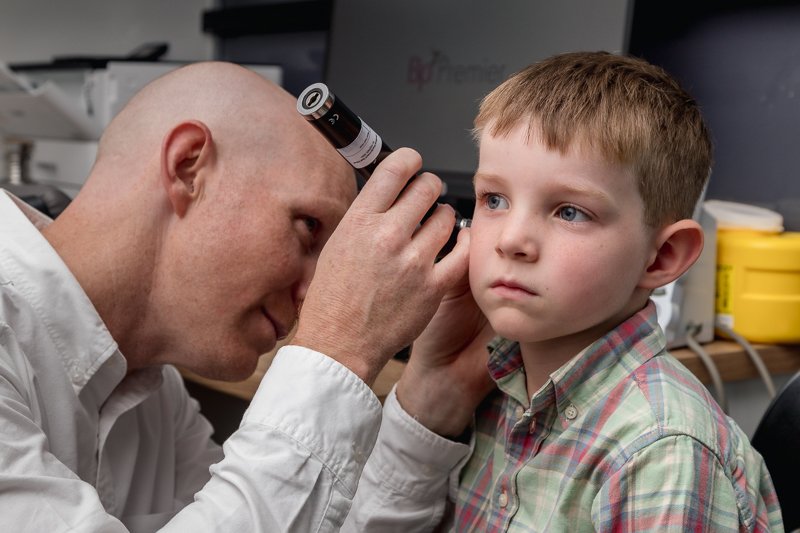Why Health Screenings are Important
When you are 40 and above, placing value on health will become more of a priority. Let's face it, aging is inevitable and whether you like it or not, along with age comes a host of changes in your body and brain. As your metabolism slows down after 40, it is important to take care of yourself more than ever. Aside from eating healthy, getting enough exercise and stress management, it is also recommended that you get routine health screenings.
So, what tests should a woman have at 40?
Here's a list of screenings Peregian Family Medical Centre recommends women 40 and older should have:
Annual Exam and Review
Annual physical exams can help detect problems early or even before they start. During your physical exam, your doctor may order a variety of tests and screenings depending on your age, family medical history and risk factors. This also includes reviewing your lifestyle habits and making sure your vaccinations are up-to-date.
Blood Glucose Test
This procedure measures the amount of glucose in your blood. This is an important tool in preventing, diagnosing, monitoring and managing diabetes. Depending on your risks, you should be screened annually or every three years. Some of the risk factors include being 45 or above, being overweight, family history, a sedentary lifestyle, high cholesterol or hypertension.
Eye Exam
Most eye care professionals recommend a comprehensive eye exam at least every one to two years depending on your age, risk factors and if you currently wear contact lenses or glasses. A baseline eye exam is a comprehensive screening for any signs of early onset of eye diseases and other general health problems. This is important as the eye is also an indicator of other health conditions such as diabetes, high blood pressure and even some types of cancers.
Hearing Test
Since the aging process is a major factor in hearing loss, it is important that you have hearing tests when you are 40 or above. Experts recommend that adults have a hearing test every 10 years until age 50, and then every 3 years thereafter.
Blood Pressure
If you are over 40 with a family history of high blood pressure, heart attack or stroke, you should have your blood pressure checked annually. Even if your blood pressure is normal and you have no family history, you still need to be checked at least every two years. The higher your blood pressure, the higher your risk of health problems such as cardiac arrest or stroke.
Cholesterol
Women should begin cholesterol screening between the ages of 40-45, as cholesterol often increases when you enter menopause. A complete cholesterol test will determine your risk of developing different forms of heart diseases and diseases of the blood vessels such as atherosclerosis or aneurysm.
Vaccinations
Your doctor needs to check if your vaccinations are up-to-date, especially that of Human Papillomavirus (HPV). This is especially important to prevent certain types of cancer or genital warts. Immunity from previous vaccinations such as Whooping cough may also be wearing off so this issue will also be discussed.
Cervical Cancer Screening
Cervical cancer can occur at any age, but it is more common among women over 40.
In December 2017, the Cervical Screening Test replaced the Pap test in Australia. This now tests for known stains of Human Papillomaviruses (HPV) that have been shown to cause cervical cancer. This test starts at age 25, or 2 years after becoming sexually active, which ever date is later.
You only need to be tested every five years if your result is normal.
Clinical Breast Exam
A clinical breast exam (CBE) is a physical exam done during your regular medical check-up. This is performed by your doctor. During the exam, your doctor will carefully palpate your breasts, underarm and the area just below your breast bone for any changes or abnormalities. The main goal of the clinical breast examination is to differentiate normal physiological changes from a discrete breast mass. Your doctor will also discuss your breast self examination with you at the time so you can maintain surveillance of your breast tissue at home.
Skin Checks
You should have your skin checked by a GP annually at a minimum. You should also be doing a home skin check frequently and should always visit your GP if you notice any changes.
Bone Mineral Density Test
If you are over 40 and have risk factors for osteoporosis, including minimal trauma fracture, you should be screened to see whether further testing is required. This may include a Bone Mineral Density test. A bone mineral density (BMD) test measures the amount of minerals present in your bone to help detect the risk of osteoporosis and bone fractures.
The complete range of medical checks and screening procedures required for women over 40 varies from person to person, depending on risk factors, personal and family medical history and lifestyle.
Discuss what preventive health screenings you need in order to maintain a healthy mind and body with your doctor.






